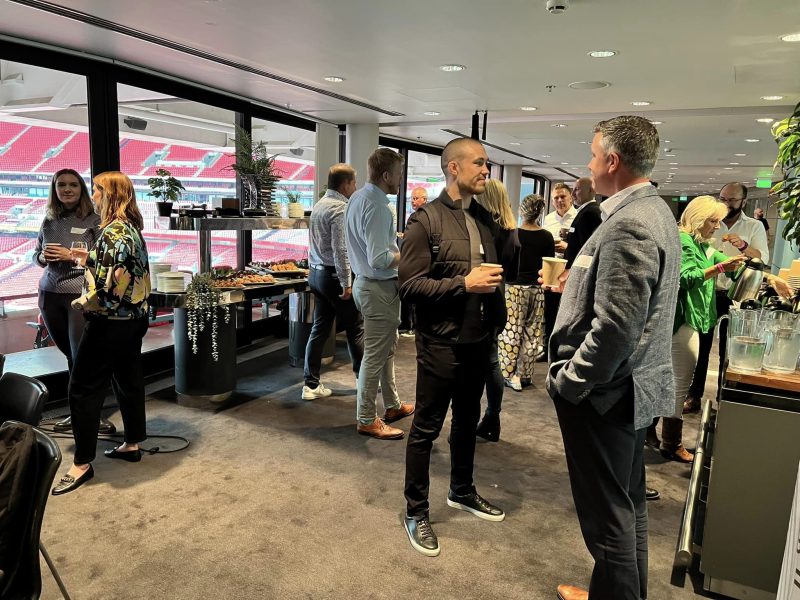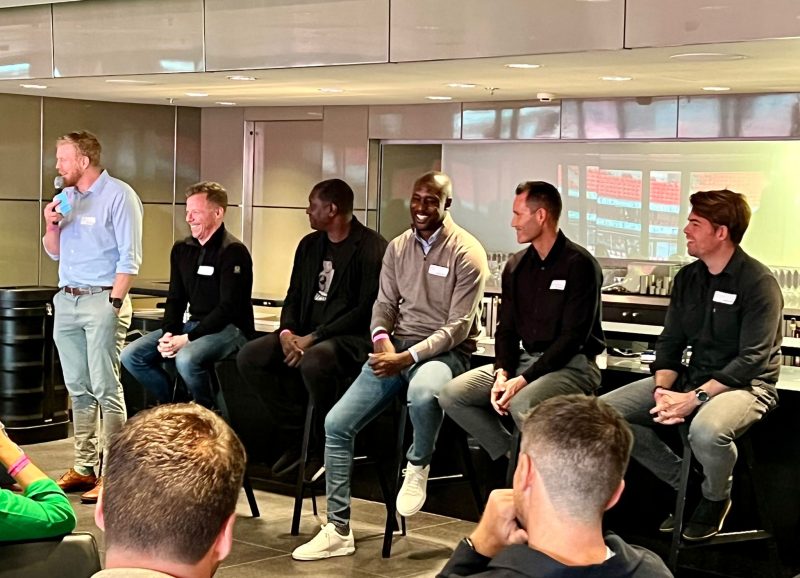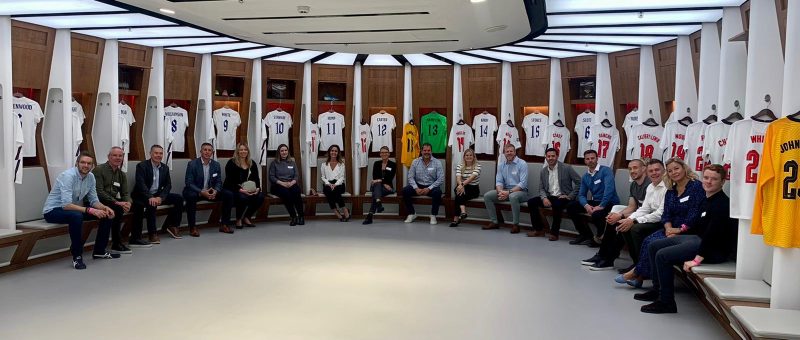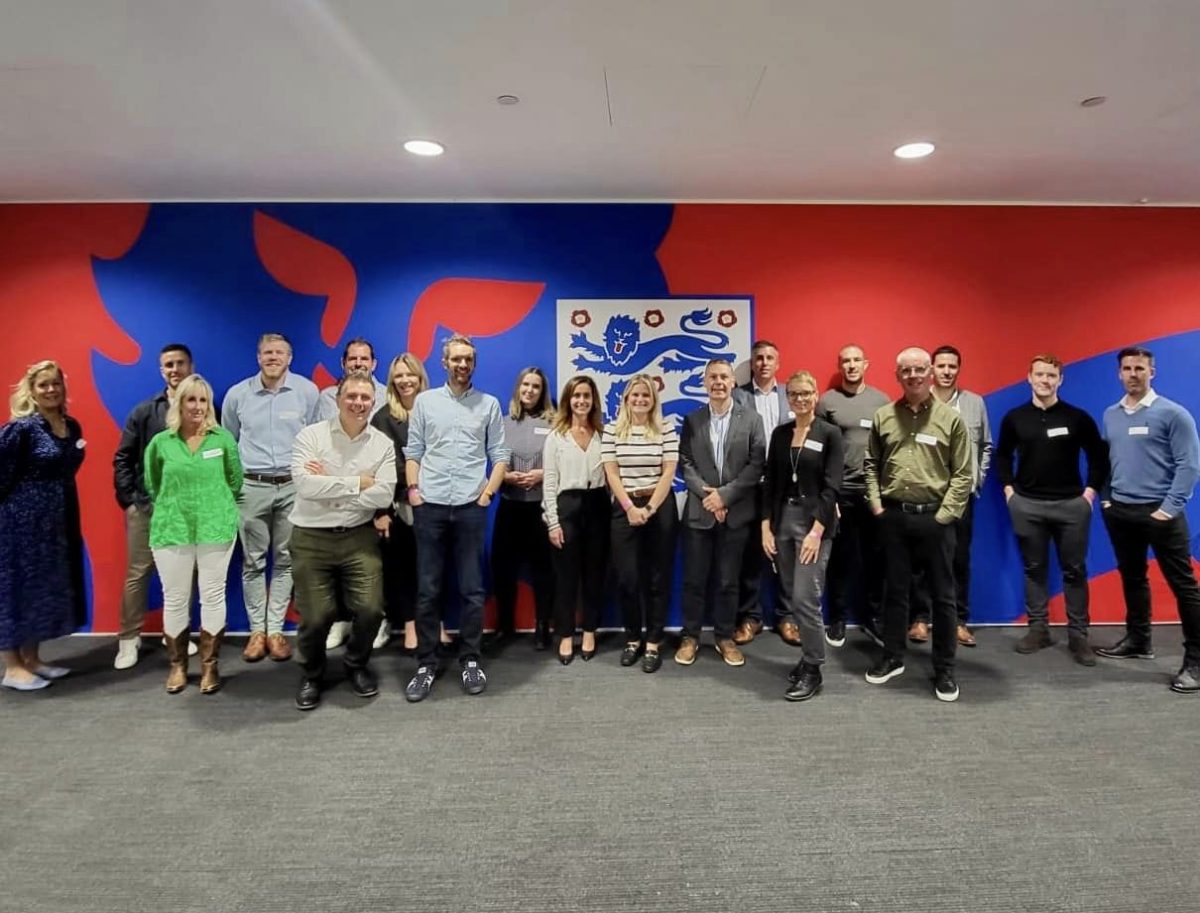Connect with us on LinkedIn for updates and the latest industry news
Looking around the room at our recent Performance Hub event with everyone deep in discussion about fast-tracking talent reminded me why this community is so special, so unique.
I’ve hugely missed social interaction like this in the past two years. More than 50 clients, colleagues and friends at the top of their game in sport and business linked by passion to develop high performance through people – and wanting to better themselves and learn from each other. And while we have a degree of similarity, we all bring our own perspectives from different contexts.
We were privileged to be at Wembley Stadium and experience a tour. Wandering around, taking in the changing rooms and the impressive grounds, the environment inspired great conversations that drifted between social and business.
“Netwalking”, as someone described it, is so valuable and often a theme of Leading Edge interactions with clients. There’s something about being in step with someone – walking side by side – that opens up natural conversation.
I felt that this Performance Hub get-together was a particularly good version of that.

Widening the talent pool
Steve Guinan talked about The FA’s Player to Coach Programme that Leading Edge Team Coaches have supported for a few years. The best footballer doesn’t always make the best coach, just as the top salesperson isn’t destined to be a natural sales director. The FA sets former players up for success by getting them to think about the differences to expect between playing and coaching. It’s about putting the scaffolding in place to help future coaching talent take that big next step.
Do we always need to fast-track talent through the traditional disciplines? Steve encouraged us to think about a sales team member with mid-level results who’s always supporting and coaching others – are they the person to fast-track instead? Definitely a challenge to those charged with identifying, developing and retaining high potential.
Are we listening?
‘Hunting for expectations’ was the theme from Ian Leman of Performance Edge. As a former Human Intelligence Officer, Ian focuses on uncovering the human data that can influence a situation. As leaders, if we keep thinking we know what future generations want from their employer but we don’t ask them – or don’t listen when we do ask – then they won’t join us or stay with us if they do.
We need to be clear on what the future talent in our organisations expects. I wonder what it would look like if we compared our own Top 5 workplace expectations with those currently being revealed by Performance Edge’s ‘expectation-hunting’ model.
Retrain to retain
I think it was easy for people in the room to picture the digital skills emergency described by Simon Walker from Kubrick. His company hires ‘brilliant minds’ and trains them through an intense programme to have the skills in data, AI and cloud technology in massive demand right now but not available in anywhere near the numbers needed.
What stood out for me is Kubrick’s secondary arm: tackling the ‘Frozen Middle’. By upskilling clients’ non-technical team members, Kubrick helps organisations to reduce churn and retain important knowledge, as an alternative to making redundant a whole section of an organisation that isn’t tech savvy – only to start recruiting (or trying to) all over again.

Valuable sharing among this special group
I don’t think many organisations could do what we do with Performance Hub: connecting the sport and business worlds in a like-minded community. People come because they want to, not because it’s part of a sponsorship or corporate commitment. Sharing learnings from sport and business always throws up similarities and differences.
A final reflection from me is on how talent is fast-tracked in both environments.
Clear pathway or flexible route?
In elite sport, there’s a pathway. It’s intentional. Future talent arrives at a relatively young age and the pathway allows progression from schoolkid level to professional athlete and then into coaching or management. Although it’s clear, it’s also narrow, the focus being on the level reached in a chosen sport.
In business, an individual can move around disciplines, departments, even companies, building a career as they grow. Although it’s greyer, and definitely not as sharp, it provides more variety in opportunity.
Perhaps businesses could be more laser-focused with tracking talent through a pathway and sport could look at more flexible routes for someone to reach their desired level.
I love how Performance Hub conversations get you thinking. Thanks, everyone. It’ll be great to catch up again soon.





